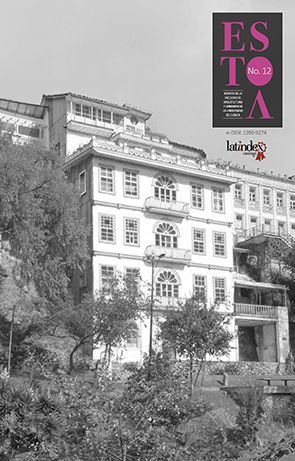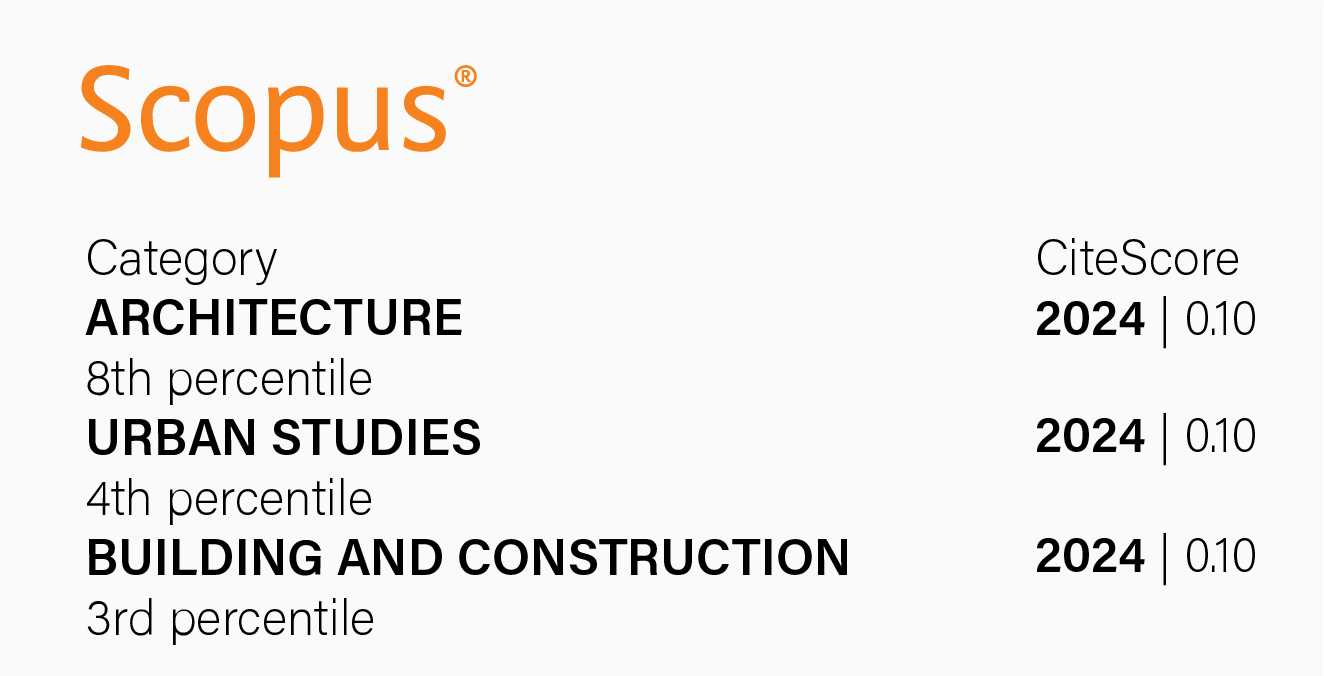Topicality of Cuba’s heritage, thinking over sustainable development and preventive conservation
DOI:
https://doi.org/10.18537/est.v007.n012.a05Abstract
Recent changes in Cuba’s economic and social policies foresee implications in local heritage sites. Current challenges determine the need to examine opportunities for sustainable development within the new socioeconomic context. In this regard, scholars analyze the positive and negative effects of today’s circumstances. The analyses exposed in this paper start by noting the links between culture, sustainable development, and preventive conservation (first section). The latest as a new paradigm within the heritage field that articulates the social, economic, and environment pillars. The second section addresses the main issues of Cuban heritage sites; as well as the challenges that both, integral development plans and management plans still have to cope with. Considering the topicality of Cuba’s heritage, the third section exposes possible alternatives that can contribute to sustainable development by referring to actions undertaken in the Academia.
Keywords: heritage sites, Cuba, sustainable development, preventive conservationDownloads
References
Bello Caballero, L., Muñoz Castillo, M., & Van Balen, K. (2017). Documenting the Impact of Socioeconomic Dynamics on Heritage Sites. The Case of Vista Alegre District in Santiago de Cuba. ISPRS Annals of Photogrammetry, Remote Sensing and Spatial Information Sciences, IV-2/W2, 31–38. https://doi.org/10.5194/isprs-annals-IV-2-W2-31-2017
Cardoso, F., Moscoso, S., Astudillo, S., Wijffels, A., & Van Balen, K. (2013). From Theory to Action, Social Involvement in Rural Built Heritage Maintenance. In K. Van Balen & A. Vandesande (Eds.), Reflections on Preventive Conservation, Maintenance and Monitoring of Monuments and Sites (PRECOM3OS UNESCO Chair). Leuven, Belgium: ACCO.
CHCF Consortium. (2015). Cultural Heritage Counts for Europe. Executive summary and strategic recommendations. Retrieved from http://www.theheritagealliance.org.uk/cultural-heritage-counts-for-europe/
Clark, E. (2005). The Order and Simplicity of Gentrification - a political challenge. In R. Atkinson & G. Bridge (Eds.), Gentrification in a global context: The new urban colonialism. London: Routledge. Retrieved from https://www.academia.edu/4065472/The_Order_and_Simplicity_of_Gentrification
CNPC. (2016). Monumentos Nacionales | Portal del Consejo Nacional de Patrimonio Cultural. Retrieved May 15, 2016, from http://www.cnpc.cult.cu/monumentos-nacionales
Cubadebate. (2011). Cuba autoriza la compraventa de casas desde la próxima semana (+Gaceta). Cubadebate. Retrieved from http://www.cubadebate.cu/noticias/2011/11/03/cuba-autoriza-la-compraventa-de-casas-desde-la-proxima-semana/
Cubadebate. (2016, April 30). Cuba supera el medio millón de cuentapropistas. Cubadebate. Retrieved from http://www.cubadebate.cu/noticias/2016/04/30/cuba-supera-el-medio-millon-de-cuentapropistas/
Escobedo, D. N. (2017). Gentrifying tourism in heritage cities. Exclusion and urban-architectural transformation in Guanajuato, Mexico. Revista INVI, 32. https://doi.org/10.4067/S0718-83582017000100061
García, G., Cardoso, F., & Van Balen, K. (2015). The Challenges of Preventive Conservation Theory Applied to Susudel, Ecuador. In K. Van Balen & A. Vandesande (Eds.), Community involvement in heritage. Antwerp: Garant Publishers.
GCI. (2009). Historic Urban Environment. Conservation Challenges and Priorities for Action (Meeting Report). Los Angeles, CA, USA: Getty Conservation Institute.
Gómez Ortega, G., Morcate Labrada, F., & Soto Suárez, M. (2013). Consideraciones generales de la contaminación sónica en sitios patrimoniales. In Contaminación Sónica de Sitios Patrimoniales (pp. 12–13). México: Dirección de Fomento Editorial, Benemérita Universidad Autónoma de Puebla.
Granma. (2014). Texto de la Ley No. 118 de la Inversión Extranjera. Retrieved June 10, 2016, from http://www.granma.cu/cuba/2014-04-16/asamblea-nacional-del-poder-popular
Janoschka, M., & Sequera, J. (2016). Gentrification in Latin America: addressing the politics and geographies of displacement. Urban Geography, 37(8), 1175–1194. https://doi.org/10.1080/02723638.2015.1103995
Janoschka, M., Sequera, J., & Salinas, L. (2014). Gentrification in Spain and Latin America - a Critical Dialogue: Gentrification in Spain and Latin America. International Journal of Urban and Regional Research, 38(4), 1234–1265. https://doi.org/10.1111/1468-2427.12030
Leal Spengler, E. (2006). La cultura, única certeza para un proyecto sostenible. In Manejo y Gestión de Centros Históricos. La Habana, Cuba: Ediciones Boloña.
López Rodríguez, O. (2012). El Sistema de Gestión del Patrimonio Cultural en el Territorio de Santiago de Cuba. Course on Master Program presented at the Habitat y Medio Ambiente en Zonas Sísmicas, Santiago de Cuba.
López-Morales, E., Shin, H. B., & Lees, L. (2016). Latin American gentrifications. Urban Geography, 37(8), 1091–1108. https://doi.org/10.1080/02723638.2016.1200335
Lynch, J. (1979). Cuban Architecture since the Revolution. Art Journal, 39(2), 100. https://doi.org/10.2307/776395
Márquez, A., Fernández, O., Vallina, M., Dieguez, I., Portuondo, F., Ortiz, B., … Fenton, R. (2009). Experiencias de trabajo comunitario en el área patrimonial Castillo San Pedro de la Roca. In Imagen e Identidad. Santiago de Cuba: Universidad Politécnica de Valencia.
Rodríguez Alomá, P. (2009). Gestión del desarrollo integral de los centros históricos. La metodología TESIS (PhD Research). Facultad de Arquitectura, Instituto Superior Politécnico José. A. Echeverría, La Habana, Cuba. Retrieved from Oficina del Historiador de La Habana.
Rodríguez Alomá, P., Fornet Gil, P., León Candelario, I., & Zamora Rielo, R. (Eds.). (2012). Luces y Simientes. Territorio y Gestión en Cinco Centros Históricos Cubanos. La Habana, Cuba: Ediciones Boloña. Retrieved from http://www.planmaestro.ohc.cu/recursos/papel/libros/lucesysimientes.pdf
Scarpaci, J. L. (2000). Reshaping Habana Vieja: Revitalization, Historic Preservation, and Restructuring in the Socialist City. Urban Geography, 21(8), 724–744. https://doi.org/10.2747/0272-3638.21.8.724
UNESCO. (2012). Recommendation on the Historic Urban Landscape (Records of the General Conference No. Volume 1). Paris: UNESCO.
UNESCO. (2013). Placing Culture at the Heart of Sustainable Development Policies (Hangzhou International Congress). China: http://www.unesco.org/new/fileadmin/MULTIMEDIA/HQ/CLT/images/FinalHangzhouDeclaration20130517.pdf. Retrieved from http://books.google.com/books?hl=en&lr=&id=tH3yCQAAQBAJ&oi=fnd&pg=PA1&dq=%22UN+General+Assembly+Resolutions+N.+65/1+(%E2%80%9CKeeping+the+Promise:+United+to+Achieve%22+%22a+source+of+meaning+and+energy,+a+wellspring+of+creativity+and+innovation,+and%22+&ots=Lz40URfKsJ&sig=svx6spEe04T-TnzT3WtDwWnmfkQ
UNESCO. (2014). Culture & Development. World Heritage in the Caribbean. UNESCO, Ministry of Education, Culture and Science of the Netherlands. Retrieved from http://whc.unesco.org/
UNESCO. (2016). Culture Urban Future. Global Report on Culture for Urban Sustainable Development.
UNESCO WHC. (2016). UNESCO World Heritage Centre. World Heritage List. Retrieved December 12, 2016, from http://whc.unesco.org/es/list/?iso=cu&search=&
UNESCO-OHCH. (2006). A Singular Experience. Appraisals of the Integral Management Model of Old Havana, World Heritage Site. La Habana, Cuba: UNESCO, Ediciones Boloña.
Van Balen, K., & Vandesande, A. (2013). Preventive Conservation of Built Heritage: Foresight and Needs. In K. Van Balen & A. Vandesande (Eds.), Reflections on Preventive Conservation, Maintenance and Monitoring of Monuments and Sites (PRECOM3OS Unesco Chair). Leuven, Belgium: ACCO.
Van Balen, K., & Vandesande, A. (Eds.). (2016). Heritage Counts, Reflections on Cultural Heritage Theories and Practices. London: Garant Publishers.
Van Hooff, H. (2014). Editorial. In Culture & Development. World Heritage in the Caribbean (UNESCO, Ministry of Education, Culture and Science of the Netherlands). UNESCO World Heritage Centre. Retrieved from http://whc.unesco.org/en/series
Veldpaus, L., Pereira Roders, A. R., & Colenbrander, B. J. F. (2013). Urban Heritage: Putting the Past into the Future. The Historic Environment: Policy & Practice, 4(1), 3–18. https://doi.org/10.1179/1756750513Z.00000000022
Published
How to Cite
Issue
Section
License
The Journal declines any responsibility for possible conflicts derived from the authorship of the works that are published in it.
The University of Cuenca in Ecuador conserves the patrimonial rights (copyright) of the published works and will favor the reuse of the same ones, these can be: copy, use, diffuse, transmit and expose publicly.
Unless otherwise indicated, all contents of the electronic edition are distributed under a Creative Commons Attribution-NonCommercial-ShareAlike 4.0 International License.




